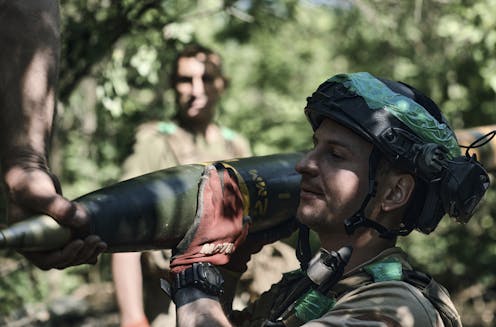Is NATO to blame for the Russo-Ukrainian war? It's complicated, explains historian Serhii Plokhy
- Written by Mark Edele, Hansen Professor in History, Deputy Dean, The University of Melbourne

A year after Russia’s all-out attack against its neighbour on February 24 2022, volumes trying to explain the conflict to the public begin to accumulate on my bookshelf. Think-tankers[1], political scientists[2] and journalists[3] have been at the forefront.
Historians, used to slow-burning research projects, have so far been absent from this developing historiography of the war. This is beginning to change, and it is only appropriate that the lead is taken by one of the most accomplished English-language historians of Ukraine, Harvard University’s Serhii Plokhy.
Review: The Russo-Ukrainian War – Serhii Plokhy (Allen Lane)
Plokhy, who grew up in Zaporizhzhia and began his academic career in Dnipropetrovsk (both in Ukraine), keeps his outrage about Russia’s aggression on a tight leash. There are no polemics in this book. The historian lets the facts speak.
Interpretation is provided mostly in the form of narrative. This restraint is remarkable: his sister still lives in Ukraine and a cousin died defending Bakhmut[4].

















